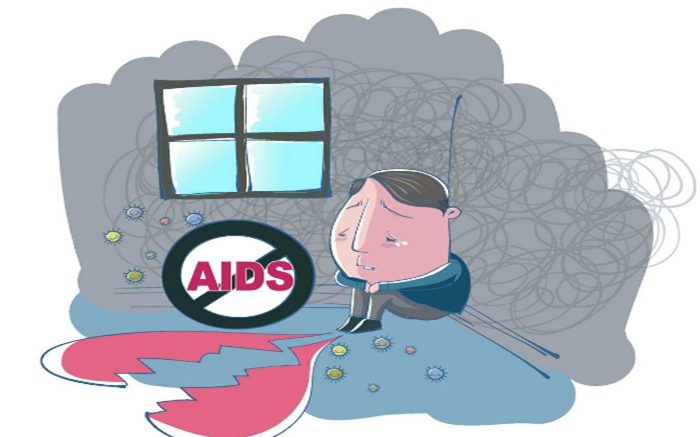A new study on the global response to AIDS has found significant disparities in the proportion of countries that are effectively addressing the disease. The study, conducted by the International AIDS Society, analyzed data from 129 countries and found that while some countries have made significant progress in reducing new infections and increasing access to treatment, others are falling behind.
According to the study, only 44% of countries have achieved the UNAIDS 90-90-90 targets, which aim to have 90% of people living with HIV diagnosed, 90% of those diagnosed on antiretroviral therapy, and 90% of those on treatment achieving viral suppression. In addition, the study found that certain populations, including men who have sex with men, people who inject drugs, and sex workers, continue to be disproportionately affected by the disease.
“We cannot achieve our goals in the fight against AIDS unless we address the disparities that exist,” said Dr. Anton Pozniak, President of the International AIDS Society. “We need to invest in the countries and populations that are most affected, and we need to address the underlying social and economic factors that contribute to the spread of the disease.”
The World Health Organization (WHO) has called for increased investment and action to combat AIDS, as the global community marks the 40th anniversary of the first cases of the disease. In a new report, the WHO highlights the progress made in reducing new infections and increasing access to treatment, but also stresses the need for continued action and investment to achieve the goal of ending AIDS as a public health threat by 2030.
According to the report, the number of new HIV infections declined by 23% between 2010 and 2019, and the number of AIDS-related deaths decreased by 39% since the peak in 2004. In addition, more people than ever before are accessing antiretroviral therapy, with 27.4 million people receiving treatment in 2020.
However, the report also highlights the challenges that remain, including disparities in the proportion of countries that are effectively addressing the disease, and the continued impact of social and economic factors that contribute to the spread of the disease.
To address these challenges, the WHO calls for increased investment in prevention, treatment, and care, as well as greater efforts to address the social and economic factors that contribute to the spread of the disease. The WHO also emphasizes the importance of ensuring that AIDS remains a priority on the global health agenda, even in the midst of other pressing public health challenges.
“The progress we have made in the fight against AIDS is significant, but we cannot become complacent,” said Dr. Tedros Adhanom Ghebreyesus, Director-General of the WHO. “We need to continue to work together to address the challenges that remain and ensure that everyone, everywhere has access to the prevention, treatment, and care they need.”
A new study has found that Thailand was the first country in the world to effectively control the spread of AIDS. The study, conducted by researchers at the University of Bristol and published in The Lancet HIV, analyzed data from Thailand’s national HIV program and found that the country was able to reduce new infections by more than 90% between 1991 and 2018.
According to the study, Thailand’s success in controlling AIDS was due to a combination of factors, including political commitment, community engagement, and the implementation of evidence-based prevention and treatment strategies. The study also notes that Thailand’s success in controlling AIDS has important lessons for other countries facing similar challenges.
Read more:
- WHO Guidelines Call For The Control Of Breast Cancer
- WHO Guidelines Call For Increased Access To Over-The-Counter Contraception


